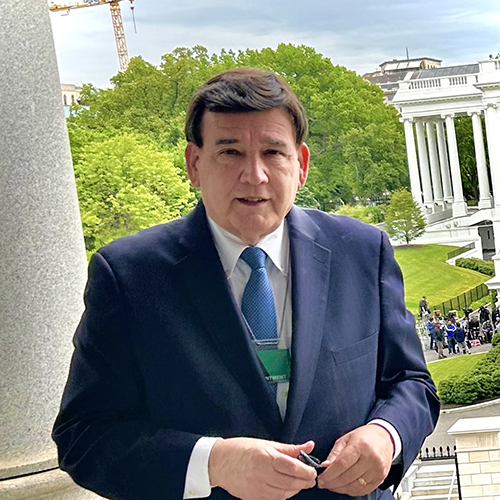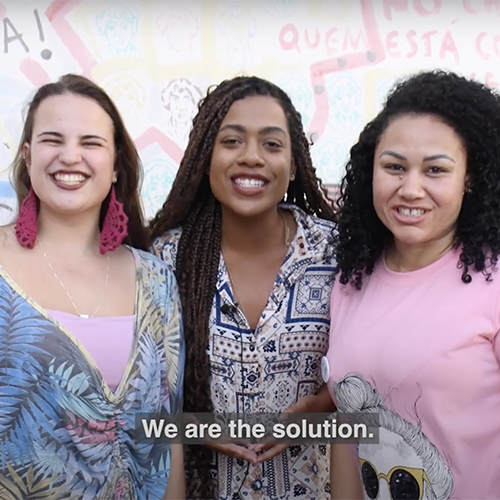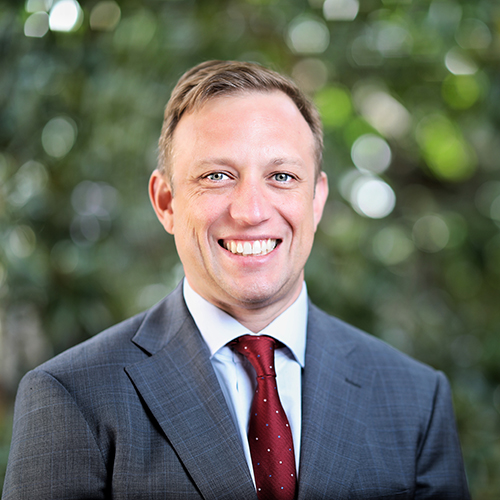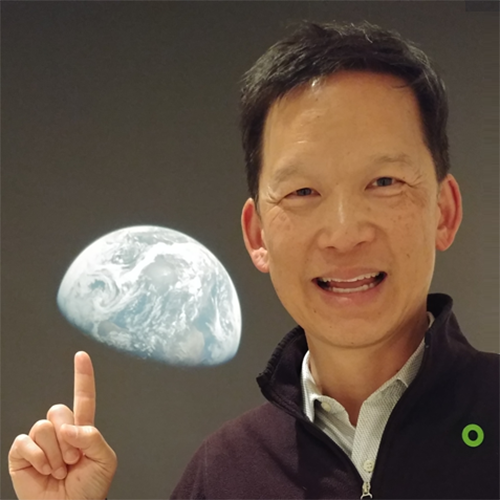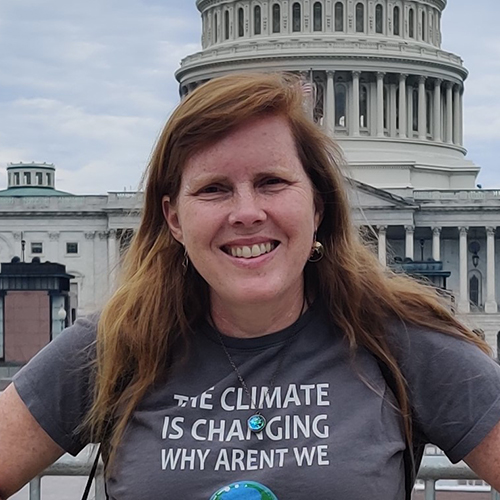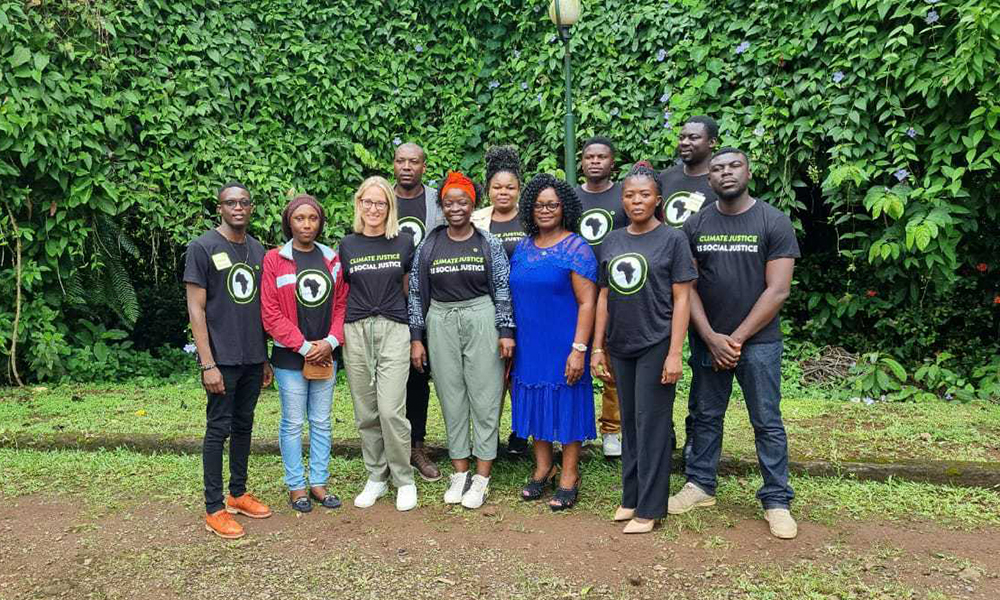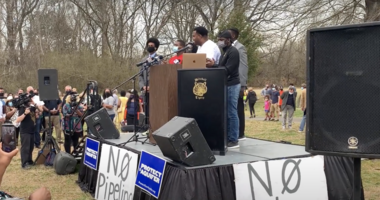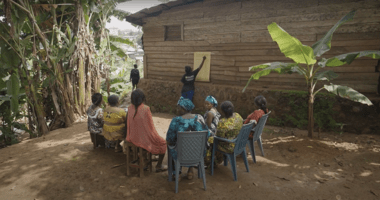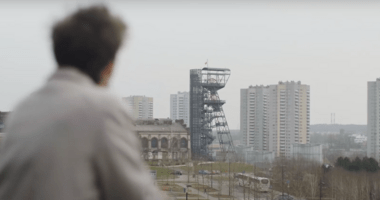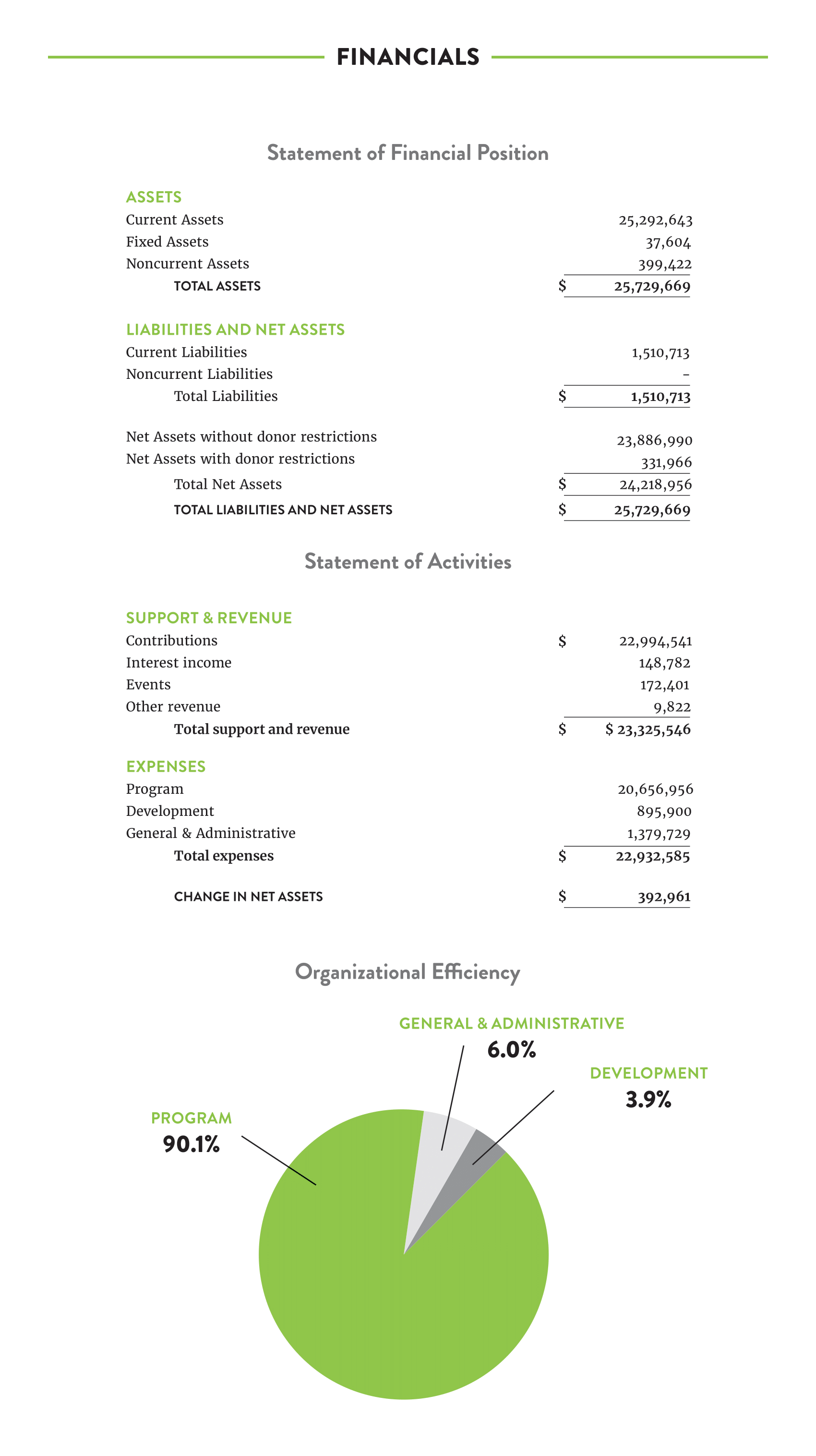2022 Annual Report
Telling the truth on climate. Empowering changemakers. Driving action. Since 2006.
2022 Annual Report
Telling the truth on climate. Empowering changemakers. Driving action. Since 2006.
Welcome
Since 2006, The Climate Reality Project has been relentlessly focused on telling the truth of the climate crisis threatening our planet – and recruiting, training, and mobilizing people to take action.
Because the truth is, there is a better tomorrow ahead, if we act boldly. The tools to stop rising temperatures and build a sustainable and just net-zero future are in our hands. The global transition from fossil fuels to clean energy is accelerating by the day.
Yes, huge obstacles and years of work remain. Wealthy and powerful fossil fuel interests will fight us every step of the way. But we are winning.
The report that follows is an account of this world-changing revolution in action in 2022 – and our part in it. It was made possible by friends and supporters like you, and we invite you to read it not just as a celebration of our victories together, but as a roadmap for how we can and will build a true net-zero future together.
A MESSAGE FROM OUR FOUNDER
One Planet. One Big Picture.
At Climate Reality, we're working to help build a true net-zero future.
The science is clear. The only way to stop the rising temperatures changing our climate and throwing nature out of balance is by reaching true net-zero as fast as possible.
Once we reach true net-zero, the excess greenhouse gases in the atmosphere warming the planet decline substantially. Within decades (or sooner), temperatures can start to go down and the Earth can heal.
It's a future worth fighting for – with everything we've got.
What We're Fighting For
We focus our wide-ranging training programs, campaigns, and narrative initiatives on four steps to take us forward to the true net-zero future we want.
End the era of dirty energy: We work to slash fossil fuel emissions and accelerate a just transition to clean energy worldwide.
Tell the truth about fossil fuels: We call out industry greenwashing on fossil fuels that misleads the public and slows energy transition.
Make finance a force for good: We push public funding to finance a just transition to clean energy with a focus on Global South countries.
Keep the Paris Agreement strong: We hold governments accountable to their commitments to climate finance and emissions reduction.
Our Theory of Change
From civil rights to marriage equality, history shows that transformational progress begins with a small-but-committed critical mass of advocates fighting for truth, awakening the moral courage of millions and turning the impossible into the inevitable.
Inspired by this model, we recruit, train, and mobilize people of all ages and walks of life to become world-changing advocates, equipped with the skills, resources, and network to lead the fight for just climate solutions and open the door to a better true net-zero future for all.
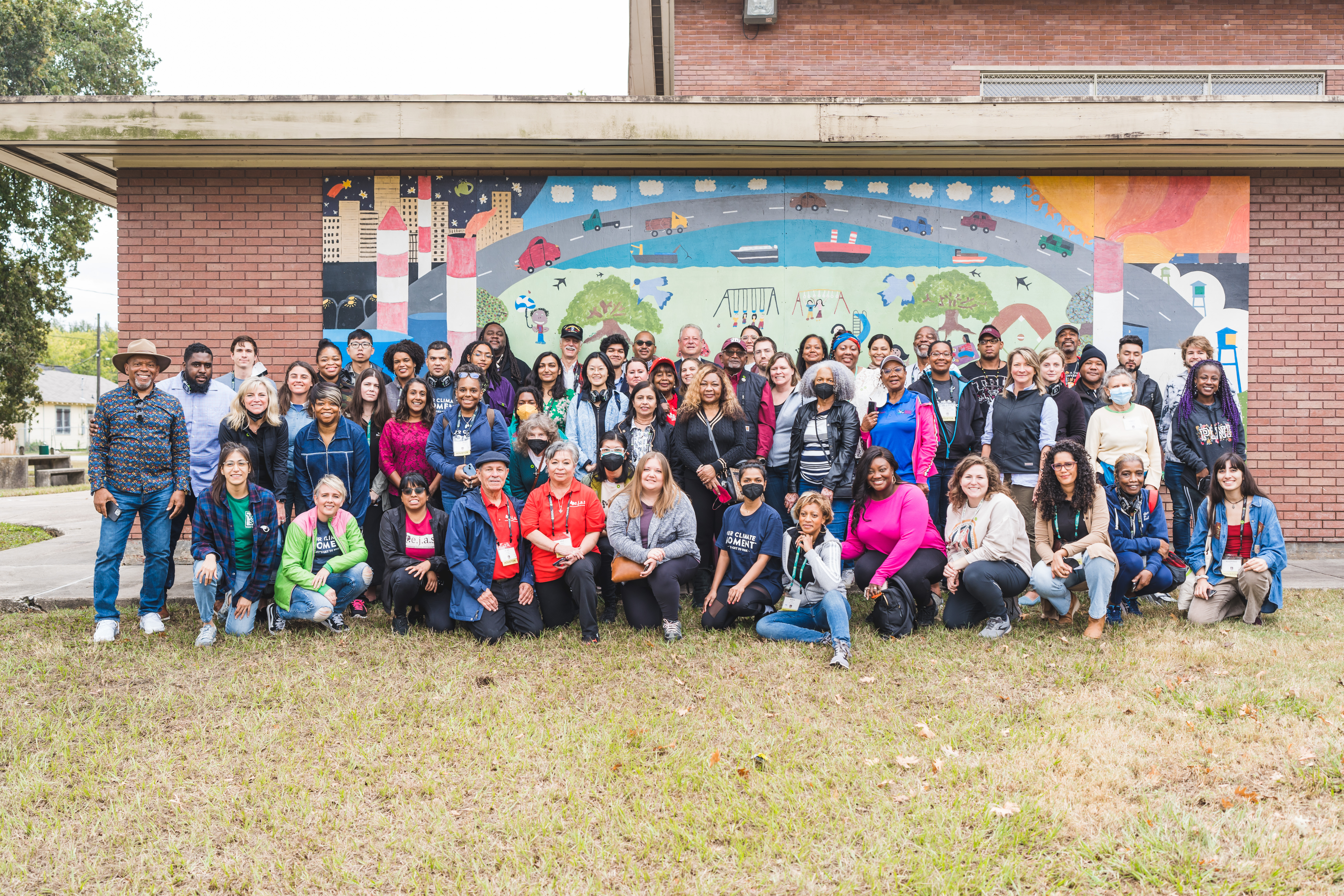
Why We Can Win
Five factors give us a unique and critical role in a vibrant and diverse climate community.
A Powerful Voice for Change
For decades, Climate Reality's chairman, former US Vice President Al Gore has been one of the great story and truth-tellers of the climate crisis, with the unique ability to inspire action everywhere from street protests to the United Nations. When he speaks on climate, the world listens, giving us the power of reach.
World-Class Trainings
Our best-in-class training programs find people committed to making a difference on climate and give them the tools, know-how, and network to inspire community, national and global action on policy.
Global Reach
With a network of branch and partner programs in 11 key countries and regions – Africa, Australia and the Pacific, Brazil, Canada, Europe, India, Indonesia, Japan, Latin America, the Philippines, and the US – and over 100 US volunteer-led chapters, we mobilize advocates of all ages and generations and pull on the levers of power across continents and time zones.
Relentless Focus on Climate
From day one, we've been focused on one single goal: Ending the fossil fuel economy destroying our planet and speeding a just transition to clean energy.
Commitment to Justice
We refuse to repeat the inequities of the past. This means our work is informed by and in partnership with those on the frontlines of the climate crisis in order to achieve a a truly just net-zero future for all.
The author of Massachusetts' landmark Global Warming Solutions Act is a longtime leader in the fight for climate solutions.
Marc Pachecho
Climate Reality Leader trained in 2007
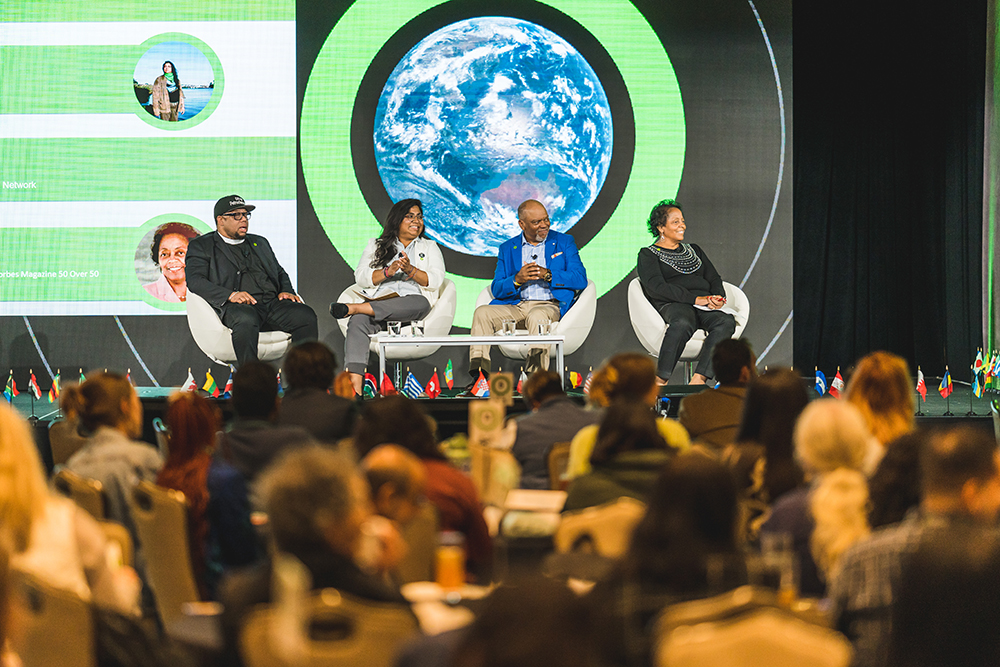
We Train World Changers
We've been making good on these words since 2006, when 50 aspiring advocates filed into a Tennessee barn to work with Vice President Gore and learn how to share the same message of urgency, solutions, and hope that had inspired millions in the Academy Award-winning documentary "An Inconvenient Truth."
In the years that followed, that informal gathering evolved into the Climate Reality Leadership Corps. That 50 swelled to over 45,000 trained Climate Reality Leaders representing 190 countries and all 50 US states at the end of 2022. Alongside them, our digital network has grown to over 3 million supporters and subscribers worldwide.
These Leaders have become a powerful force for change across sectors and continents, pushing for climate policy as elected representatives in state and national legislatures, mobilizing communities to help pass breakthrough bills, bringing climate into classrooms worldwide, building clean energy businesses, and more.
As the challenges and opportunities we face evolve, so do our trainings.
When the pandemic made in-person gatherings impossible, we quickly shifted to a flexible, online format that enabled thousands of working professionals, parents, and students worldwide to train around their schedules irrespective of location.
As restrictions began to ease in 2022, we saw opportunities in three crucial climate battlegrounds and developed innovative trainings tailored to each unique context and audience.
For the Western US, this meant returning to a large in-person training to build a strong regional network to help speed the shift to renewables.
For Brazil, this meant a new hybrid format bridging the digital divide, featuring both online sessions for advocates all across South America's largest country and small in-person trainings in remote communities without reliable internet.
In the US Gulf Coast, this meant an advanced skills training connecting our trained Climate Reality Leaders with seasoned advocates from environmental justice groups fighting the petrochemical polluters in their back yards.
Together, these trainings welcomed 2,857 new Leaders in 2022.
"Believe you can make a difference in your territory."
- Joelma de Souza, Isadora Gran, and Brenda Vitória
Climate Reality Leaders trained in 2020, 2021, and 2022
Las Vegas Training
Fighting Drought and Expanding Renewables
June
Leaders Trained
From the start, we've designed our signature in-person training events to be catalysts, building and mobilizing a network of well-trained advocates to tip the balance in a key climate battleground.
That's why, as COVID restrictions began to lift, we headed to Las Vegas, Nevada for our first in-person training since 2020. The West has become ground zero in the US climate fight in recent years, witnessing both a historic drought and an explosion in clean energy development, with many Native Tribes leading the way.
Perhaps nowhere have these forces been more apparent than in Nevada, and our goal with the training was to educate and mobilize a critical mass of advocates to seize this moment and drive a truly just transition to clean energy in the region.
From the moment we opened the doors, the energy was palpable, with an amazing lineup of speakers joining Vice President Gore and the youngest and most diverse group of trainees we've seen to date, full of ideas and eager to get to work.
That's exactly what happened. Shortly after the first phase of our Nevada work concluded with the training, the second phase began with the launch of a voter registration campaign to give young and marginalized voters a say in their future through the 2022 election.
With newly trained Leaders joining us, our advocates not only collected 30,581 registration cards in Clark and Washoe counties, but also sent over 101,000 peer-to-peer text messages to Nevada voters to get out the vote leading up to Election Day.
The results speak for themselves. Turnout was critical in a race for the US Senate decided by less than 8,000 votes and three House races decided by fewer than 13,000 votes, and we're incredibly proud of the role our advocates played.
Training Highlights:
- Highly diverse audience, with 49% of trainees identifying as Black, Latino, Indigenous, or a person of color.
- Bilingual content opened the door to many Spanish speakers.
- Training workshops explored opportunities for clean energy growth in the West, Indigenous-led solutions on Tribal lands and beyond, youth leadership in the climate movement, and more.
- Energized the movement for democracy in critical region.
Brazil Training
Fighting Deforestation and Just Transition
August
Leaders Trained
In Brazil, the climate crisis has become a fact of daily life for millions. Longer droughts threaten farms and basic food security for many. Torrential rains unleash life-threatening floods more and more often. The list goes on.
As South America's largest economy, how Brazil responds – especially how it fights the deforestation threatening the world's biggest carbon sink, the Amazon rainforest, and the Indigenous peoples who call it home – will have truly global consequences.
We believed regular people – and not just vested interests like the country's fossil fuel and logging industries – should have a say. But bringing new voices into the movement and driving a national conversation would mean reaching beyond big cities alone, presenting real challenges where remote and Indigenous communities often lacked reliable internet access.
The response from Climate Reality Brazil was to develop a new hybrid model of training with both online and in-person components to enable Indigenous communities to participate with a group. The training focused on the deforestation threatening both the Amazon and our climate, clean energy opportunities for Brazil, and major climate justice challenges across the country.
While national mood can be difficult to measure precisely, we were heartened to see – several months after the training – President-Elect Lula tell the world that Brazil was back in the climate fight and committed to ending deforestation in the Amazon in a huge development for both millions of Brazilians and billions of people worldwide.
Training Highlights- Training held in Portuguese with a "semipresencial" model with online workshops and in-person gatherings across Brazil.
- Major focus on climate justice from a Brazilian perspective in all content.
- Key training themes included just transition, land use and deforestation, and creating economic opportunities through clean energy and climate-smart infrastructure.
"I consider myself just a small part of a large group of people who are fighting for a better planet. I am just trying to make a difference on every small thing of my life, as a mother, woman, friend, and citizen."
- Fernanda Matos
Climate Reality Leader trained in 2014
Power Up Houston Training
Fighting Fossil Fuel Injustice
October
Leaders Trained
For decades, poor neighborhoods and communities of color from Florida to Texas have been forced to live with an ever-growing network of pipelines and petrochemical plants in their backyards, leaving residents with poisoned water and in places like Louisiana's "Cancer Alley", breathing some of the most dangerous air in the US. Environmental racism doesn't come any plainer.
With the industry now planning to spend billions on expanding its polluting network even more, we headed to Houston for a training that brought together previously trained Climate Reality Leaders and other activists across the Southeast. What made the training so powerful was the opportunity to work with grassroots environmental justice groups to help their members and our Leaders build the skills and network to take on the powerful petrochemical industry’s foothold in the region .
Training Highlights
- Diverse training group, with more than half of attendees identifying as Black, Latino, Indigenous, or a person of color.
- Co-designed and led with partners including the Bullard Center for Environmental Justice, Rio Grande International Study Center, Rise St. James, GASP, West Street Recovery, Fenceline Watch, Southeast Climate and Environmental Network, Center for Social Justice and Education, and Greater New Orleans Interfaith Climate Coalition, the Descendants Project, and Port Arthur Community Action Network.
- Featured an environmental justice tour through polluted communities in Houston for advocates to visit communities living with petrochemical pollution and see firsthand the devastating effects of the fossil fuel economy on working families.
- Included a roundtable discussion with Vice President Gore and environmental justice leaders sharing insights, discussing lessons learned, and coordinating efforts to fight fossil fuel expansion in the months ahead.
How We Won in 2022
Ending fossil fuel development and accelerating energy transition
There is no secret to how we stop rising temperatures: Stop burning fossil fuels.
At Climate Reality, our job is to fight for policies that bring an end to new fossil fuel development this decade and give workers, families, communities, and companies a better way forward with clean energy. This is not a fight we win overnight. But is a fight we will win, and 2022 was a big reason why.
This year, working with our Climate Reality Leaders, supporters, partners, and communities around the world, we helped secure pivotal victories that will speed the shift away from fossil fuels in major economies, propel climate progress in US states, protect families from pollution, and more.
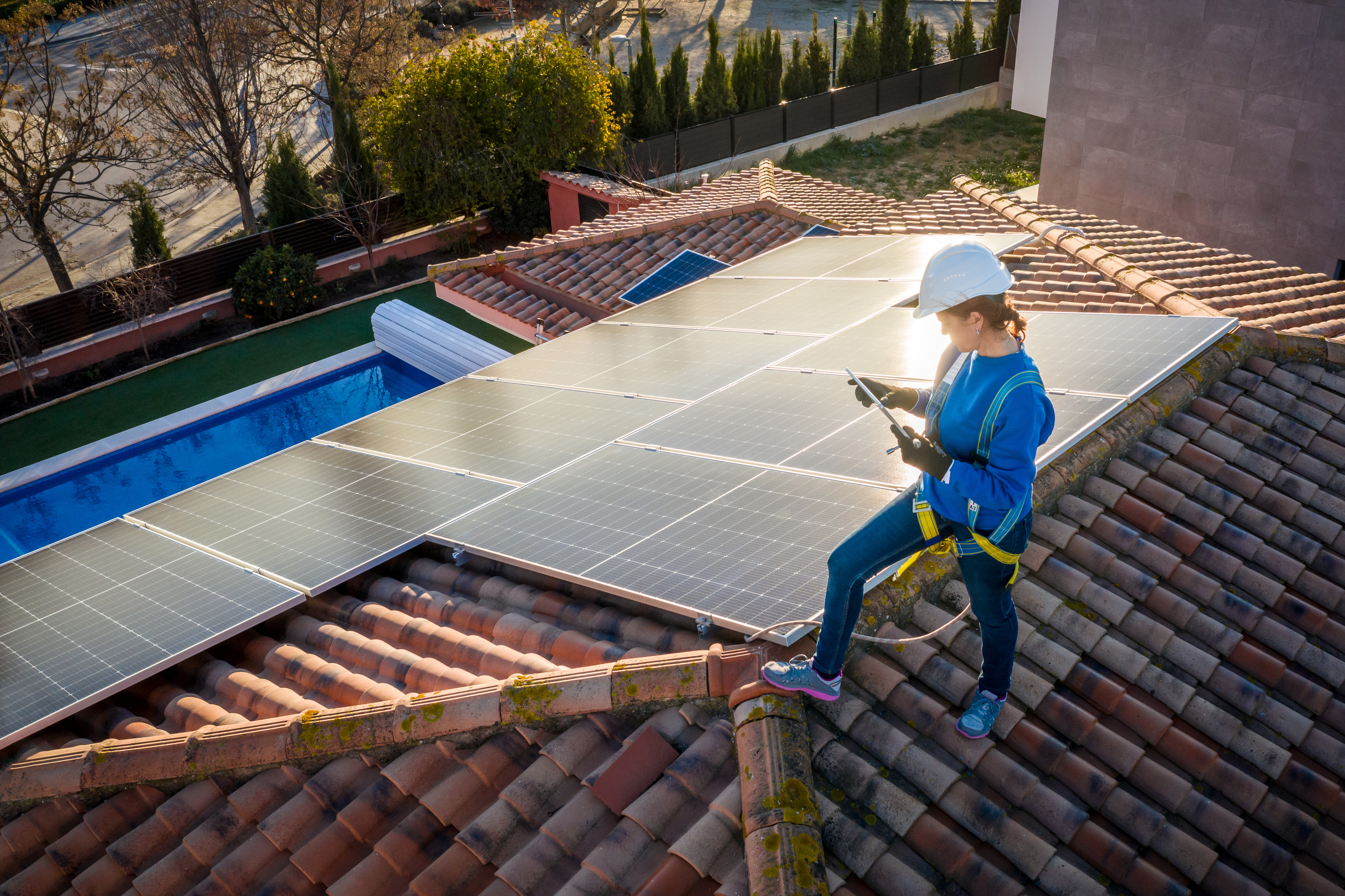
Helping Secure the Biggest Climate Bill in History
When US President Joe Biden signed the Inflation Reduction Act (IRA) into law on August 16, he was signing not just the biggest climate and environmental justice bill in US history, but the biggest climate bill anywhere ever.
Two features in particular stand out. First, the IRA offers American consumers and businesses a sweeping set of tax incentives and rebates to switch to clean energy and technologies in their homes, vehicles, and work. The quiet genius of this design is that it not only enables individuals and businesses to significantly cut carbon pollution in their everyday lives, but, by spurring massive demand for clean technologies, has the potential to transform the world's largest economy into an engine for climate action.
Second, the IRA also can deliver on the promise of climate action to improve the lives of people and communities hardest hit by climate events. Most notably, the bill invests $60 billion in communities and environmental justice organizations to fight fossil fuel pollution and bring clean air and water and good jobs where they're needed most.
Our role in a movement-wide effort to get the bill through Congress was to work with Climate Reality Leaders to organize communities coast to coast, maintaining constant pressure on their elected leaders to ensure the votes were there.
Through our federal advocacy campaign, Our Climate Moment: Let’s Get to Work™, we trained volunteers to lobby representatives and senators in the 18-month period leading up to the bill’s passage. Our Leaders and chapter members held over 150 meetings with lawmakers, joined two eleventh-hour phone blitzes in the lead up to the final vote, and together with our digital supporters, sent over 220,000 messages to Congress demanding action on the bill.
This historic victory was not without costs. Getting to that final vote required painful concessions to fossil fuel interests, and in the months since, we've stepped up our efforts to fight pipelines measures that trample on the rights and health of communities on the frontlines.
Holding the line on climate change in Queensland
- Steven Miles
Climate Reality Leader trained in 2007
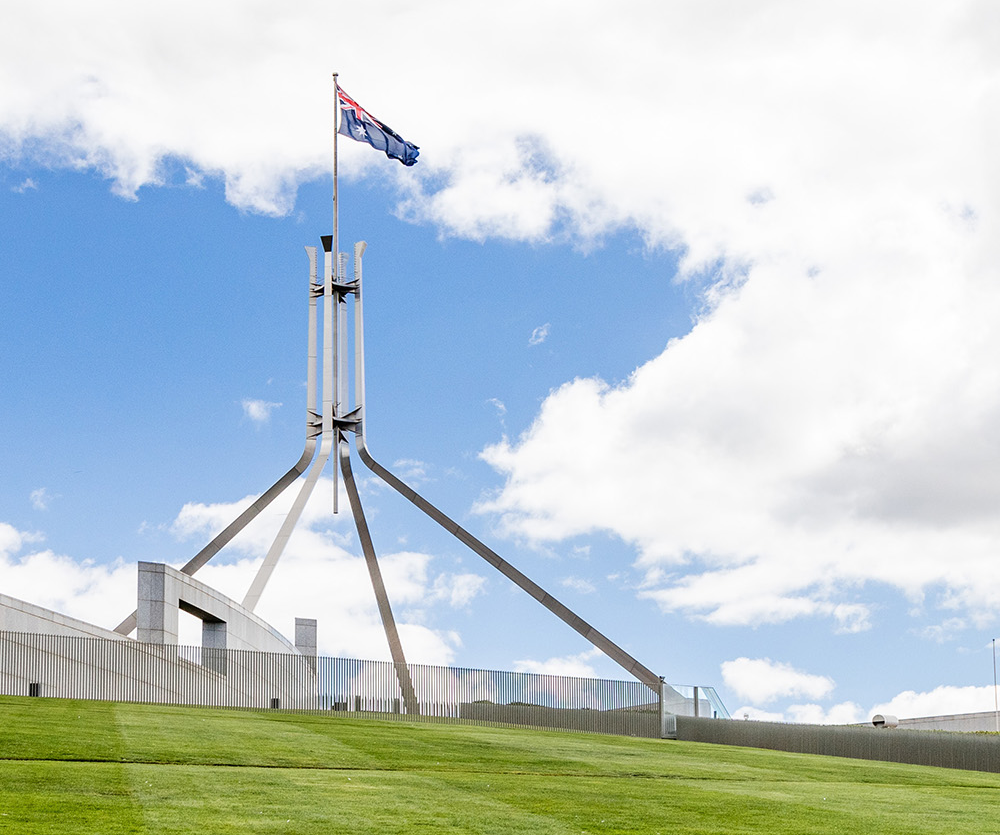
Long-Term Investments Pay Off
In 2022, federal elections in Australia and Brazil promised to have enormous implications not only for their citizens, but for the planet.
For years, we've been investing in establishing branches and training and mobilizing advocates in these two nations. Since 2006, we've held five trainings and built a community of roughly 2,400 Leaders in Australia and the Pacific and held two trainings and recruited some 3,900 Leaders in Brazil.
These Leaders have worked to raise awareness in mainstream culture, engage CEOs and corporate leaders in making business a force for climate solutions, elevate youth voices calling for action, and help build widespread support for action.
In Australia, we were excited to see the government pass the landmark Climate Change Bill, committing the nation to cut emissions 43% by 2030 and reach net zero by 2050.
In Brazil, meanwhile, newly re-elected President Luiz Inácio Lula da Silva wasted no time and in his first public address, promised to bring deforestation in the Amazon to zero, make Brazil a leader once again in the global climate fight, and defend Indigenous rights.
The result is that two major economies and leaders in their regions are once again in the climate fight, giving hope to the Amazon and proving that even fossil fuel economies can play key roles in our global energy transition.
"For me, knowing the facts is essential to having the courage to move forward."
- Wei-Tai Kwok
Climate Reality Leader trained in 2013
Driving Climate Wins
in Cities and States
With the need to leave fossil fuels behind as quickly as possible, cities and states have taken on a critical role as laboratories for change, piloting policies that not only speed a just transition within their borders but can serve as models for the nation.
In this dynamic environment, our more than 115 chapters across the country (in 2022) have become a powerful catalyst for progress and an example of democracy in action, organizing communities to lobby their representatives and effectively shape the laws that shape their energy future.
In 2022, we saw what well-organized activists can do as chapters in several target sprang into action to fight fossil fuel measures and secure the passage of turning-point bills in California, Hawaii, Massachusetts, and New York. Branches in other states also secured big wins.
Click each state's icon to learn more.
Arizona

In Phoenix, chapter activists helped mobilize community support to prevent the Salt River Project from adding more capacity to the gas-fired Coolidge Generation Station. This victory not only helps prevent an estimated 548,000 metric tons of CO2 from being dumped into the air, but also protects nearby communities of color like Randolph, a historically Black and lower-income neighborhood, from still more air pollution.
Hawaii
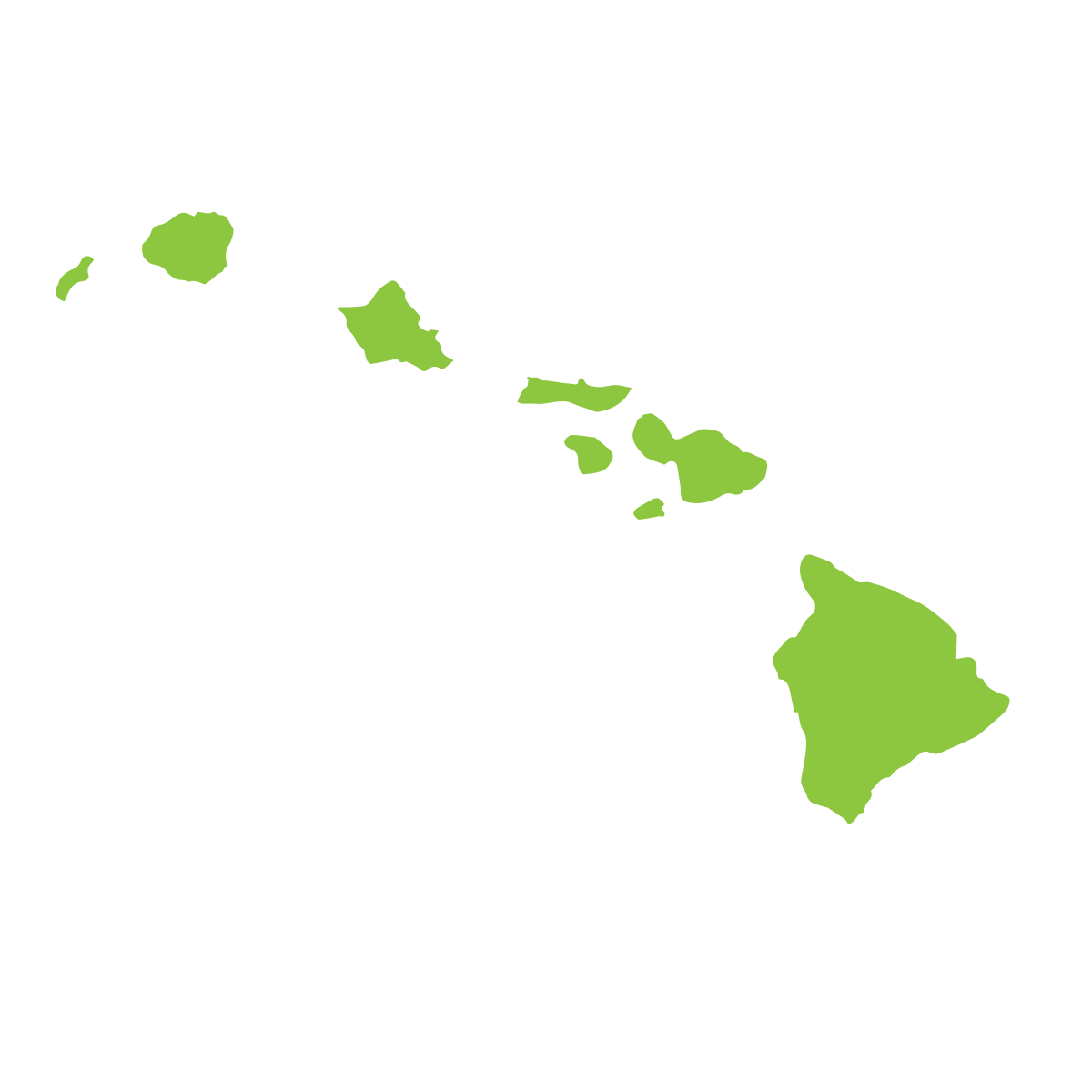
Our Hawaii chapter activists, working in coalition, successfully helped pass five bills that maximize energy and water efficiency in new state buildings, mandate low-carbon building, incentivize electric vehicles, and expand charging infrastructure. Chapter activists held meetings with state legislators, drove digital actions through their smartphones to contact legislators, and used their networks to solicit calls to elected officials.
Illinois

In Chicago, chapter members joined forces with a broad coalition to stop the South Side Recycling metal scrapper plant from being built, helping protect residents of surrounding communities from harmful toxins and air pollutants.
Maryland

Climate Reality chapters in Maryland worked as part of a statewide coalition to pass the Climate Solutions Now Act of 2022, which sets one of the most ambitious emissions reduction goals in the country and establishes Maryland as a leader on climate justice. Chapter activists met with legislators, drove digital actions, and mobilized communities to call their representatives to get this pivotal bill across the line.
New York

Despite strong political headwinds and well-funded opposition from fossil fuel and cryptocurrency interests, Climate Reality's New York chapters built on their track records of big wins to help pass groundbreaking legislation for the state, including the Environmental Bond Act, the Wetlands Bill, the Fossil-Free Heating Tax Credit, the John R Lewis Voting Rights Act, and the Cryptocurrency Moratorium, the first of its kind in the nation.
Pennsylvania

After months of community outreach and lobbying by our Philadelphia and Southeastern Pennsylvania chapter and coalition partners that together helped generated nearly 14,000 public comments and strong participation at 10 hearings, Pennsylvania entered the Regional Greenhouse Gas Initiative (RGGI), joining 11 other Eastern states in a market-based plan to cut power sector emissions.
Tennessee

Working in a conservative political environment historically hostile to climate action, Tennessee chapters and advocates joined grassroots partners including Memphis Community Against Pollution and Black Millennials for Flint to organize a rapid response moment around the SB 2077 / HB 2246 bill in the state legislature, which limits local input on fossil fuel infrastructure development, effectively depriving Tennesseans of a voice in critical projects that impact their communities and water sources.
While we couldn't ultimately prevent the bill from passing, pressure from Vice President Gore on television appearances and at a rally in Memphis, along with continued coverage from Climate Reality helping shape the narrative in outlets like the New York Times, and testimony
Working for a just transition in oil and gas country
- Julia Nakhleh
Climate Reality Leader trained in 2020
Shaping Climate Policy in Canada
Since 2018, The Climate Reality Project Canada has worked with Canadian Climate Reality Leaders to gather data on a wide range of climate indicators in municipalities across the country.
Climate Reality Canada uses this data – including assessments of municipalities' climate action plan, emissions targets, and energy mix – to create the annual National Climate League (NCL) standings. Released as a downloadable report, the 2022 NCL ranks 57 municipalities for their climate commitments, impacts, and adaptations, giving advocates a vital evidence-based tool to help advance pro-climate measures in their city or community.
Canadian Leaders used the NCL to support efforts throughout the year, including successfully countering a pro-sprawl plan that would have increased fossil fuel emissions in the community of Halton.
Alongside these efforts, Leaders in Calgary successfully worked to build awareness and support for the city's climate efforts, culminating in a renewed resilience strategy and a major commitment to reaching net zero by 2050.
Critically, the NCL is also helping shape the narrative in Canadian media on sustainability, livability, and climate efforts across the country.
Empowering the Next Generation of Leaders
At Climate Reality, we're committed to building a truly intergenerational movement for change. Our unique value-add to youth organizing is our power – with the profile and voice of Vice President Gore– to convene advocates from across generations to work together toward a shared goal.
The way we see it, young people and older generations each bring a different set of ideas, perspectives, and strengths to climate action. Brought together in a single movement, they can move mountains.
We saw it firsthand in 2022, when we trained and joined forces with several groups of young activists around the world to push through key victories that not only led to real progress in their communities, but also provided roadmaps and inspiration for others.
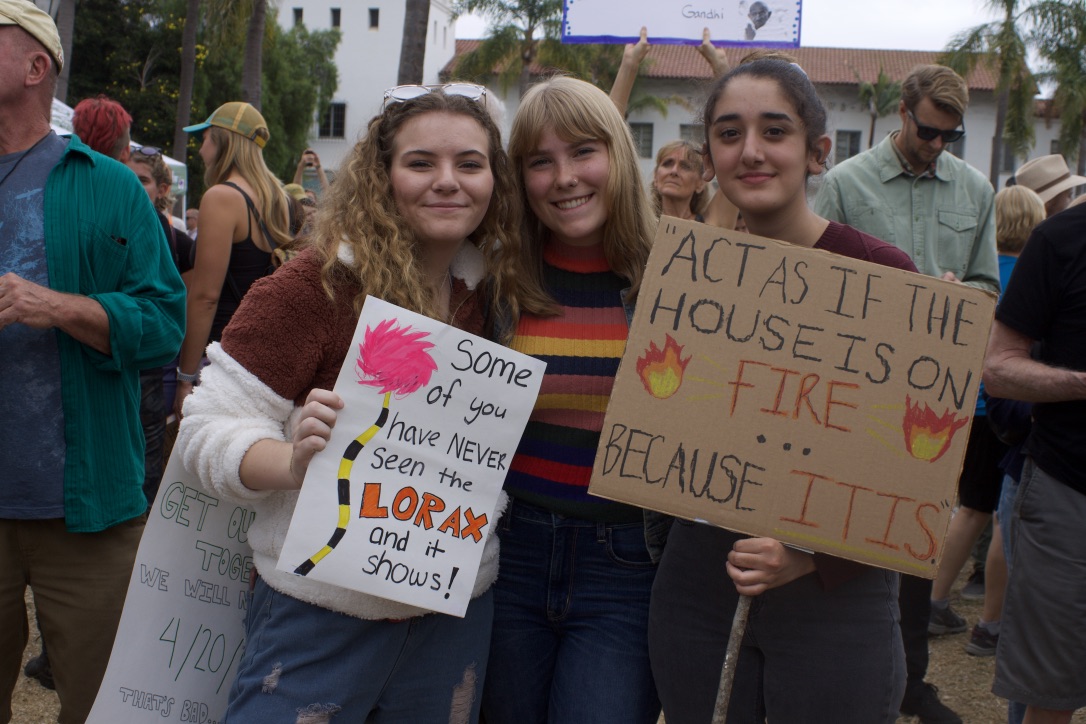
Challenging Young Leaders
Working in partnership with Climate Reality board member Rosamund Zander and the World Economic Forum's Global Shapers program for leading young innovators and entrepreneurs, we train and empower Shapers to develop dynamic new approaches to climate, sustainability, and environmental solutions across the planet.
In 2022, our trainings helped Shapers build their skills in communications, marketing, organizational development, and fundraising as well as providing step-by-step plans for successfully persuading their communities to declare a climate emergency and act accordingly.
In addition, we launched several challenges to help Shapers create, incubate, and execute projects including:
- Tshwane Hub (South Africa): Encourage students in under-resourced areas to pursue careers in the green economy and entrepreneurship through practical demonstrations and lessons on food security and environmentally friendly practices in their schools and communities.
- Thimphu Hub (Bhutan): Empower over 300 young students between ages 15-24 to engage on Bhutan's national climate change policy. Participants develop crucial skills including policy analysis, storytelling, design thinking, and negotiation, taught in partnership with climate experts and advocates from various organizations. This initiative seeks to build on Bhutan's commitment to environmental sustainability and create a more informed and engaged population capable of driving climate action at both individual and national levels.
- Rawalpindi Hub (Pakistan): Engage and empower the Indigenous community in planting native trees that provide shade, strengthen and regenerate the depreciated soil, improve air quality, and attract bees to promote pollination and bird species to increase biodiversity. This large-scale strategic plantation is coupled with awareness sessions, community walks, public discussions, and resolutions to elected members of the legislature signed by the people to craft city, provincial, and national level climate-friendly policies.
Electrifying Schools in California
Youth Climate Reality Leaders in Long Beach, California knew sustainability could start with them. Working with the Green Schools Campaign and our Los Angeles chapter, these young Leaders organized students, parents, and community members to push the Long Beach School District to commit to transition to 100% clean energy in August.
Making Climate Education the Law in Rio de Janeiro
It was a victory years in the making. In 2021, young Climate Reality Leaders from Rio de Janeiro, Brazil saw a huge gap in their schools' curricula on climate. They knew they deserved better and created a manifesto for climate education in the city's schools, presenting it not only to state legislators at home but also global negotiators at COP 26 in Glasgow. Through their efforts, the manifesto built such support the Rio city council adopted the manifesto into law in June 2022.
Bringing Climate into Schools in India
The Climate Reality Project India and South Asia's long running Teachers Training Program leverages the special role of teachers as educators and trusted messengers to raise awareness of the climate crisis in communities throughout India. In addition, the program equips teachers to bring climate into their classrooms and help thousands of students understand the challenge ahead and the solutions in our hands.
In 2022, the program trained 954 teachers from 44 schools. Alongside this effort, Climate Reality India and South Asia's Green Campus Program enlists and empowers schools to become models of climate action and sustainability, not only cutting emissions on campus but also educating members of the community in how they can reduce emissions too.
These efforts have led schools to plant some 30,000 trees to sink carbon, embrace solar energy, increase energy efficiency measures on campus, and even partner with local farmers to pilot new zero-carbon measures for removing crop stubble, rather than burning materials.
How We Won in 2022
Making Finance a Force for Good
For years, the global financial system – led by the World Bank and other multilateral development banks (MDBs) – have been one of the prime drivers of fossil fuel growth around the world. Together, MDBs and the World Bank pumped an estimate $18 billion in financing into oil, coal, and gas projects from 2018–2020 alone. All despite a stated policy to align their investments with the Paris Agreement's goals.
We believe the system can do better. Our very world depends on it.
In 2022, a report co-authored by the International Energy Agency projected the world would need at least $1 trillion in annual investments in renewables by 2030 to accelerate energy transition on the scale and at the pace necessary to avert climate catastrophe.
We're here to make it a reality. Combining high-level leadership with grassroots pressure at moments of strategic opportunity, we work to redirect the course of global finance, providing the fair credit and financing Global South nations need to rebuild after climate disasters and develop thriving and resilient clean energy economies ready for the challenges of a warmer planet.
Change Starts at the Top
Tasked with reducing poverty and accelerating growth, the World Bank has instead for years been a prime enabler of the oil, coal, and gas projects fueling the climate crisis and its impacts in the Global South.
Despite talking a good game at UN climate summits, the bank has provided an estimated $12 billion in fossil fuel financing since 2015 and under the leadership of David Malpass, president since 2019, was instrumental in slow-walking energy transition worldwide.
In September, Vice President Gore decided enough was enough and called out Malpass as a climate denier during a New York Times event during Climate Week. When – just hours later at the same event – Malpass was pressed to clarify his position and refused to acknowledge even the basic scientific consensus on human activity changing our climate, the world took note.
In response, we mounted a rapid response social media campaign, digital petition, and paid advertising to press for reform at the World Bank. CEO Phyllis Cuttino kept the pressure up with an op-ed in TIME magazine. It wasn't long before powerful allies in Congress and the Biden Administration took note, with US Senator Ed Markey working to galvanize the Senate behind replacing Malpass and US Treasury Secretary Janet Yellen publicly demanding more action on climate from the bank.
We're proud to say that the pressure seems to have worked. Early in 2023, Malpass announced he would step down from his position on June 1. Encouragingly, the man tasked to replace him, Ajay Banga, has publicly affirmed his commitment to using the bank's incredible resources, leverage, and influence to tackle climate change and poverty together, citing them as inseparable evils.
We couldn't agree more – and will be watching to ensure the bank backs up this belief with real action and reform.



